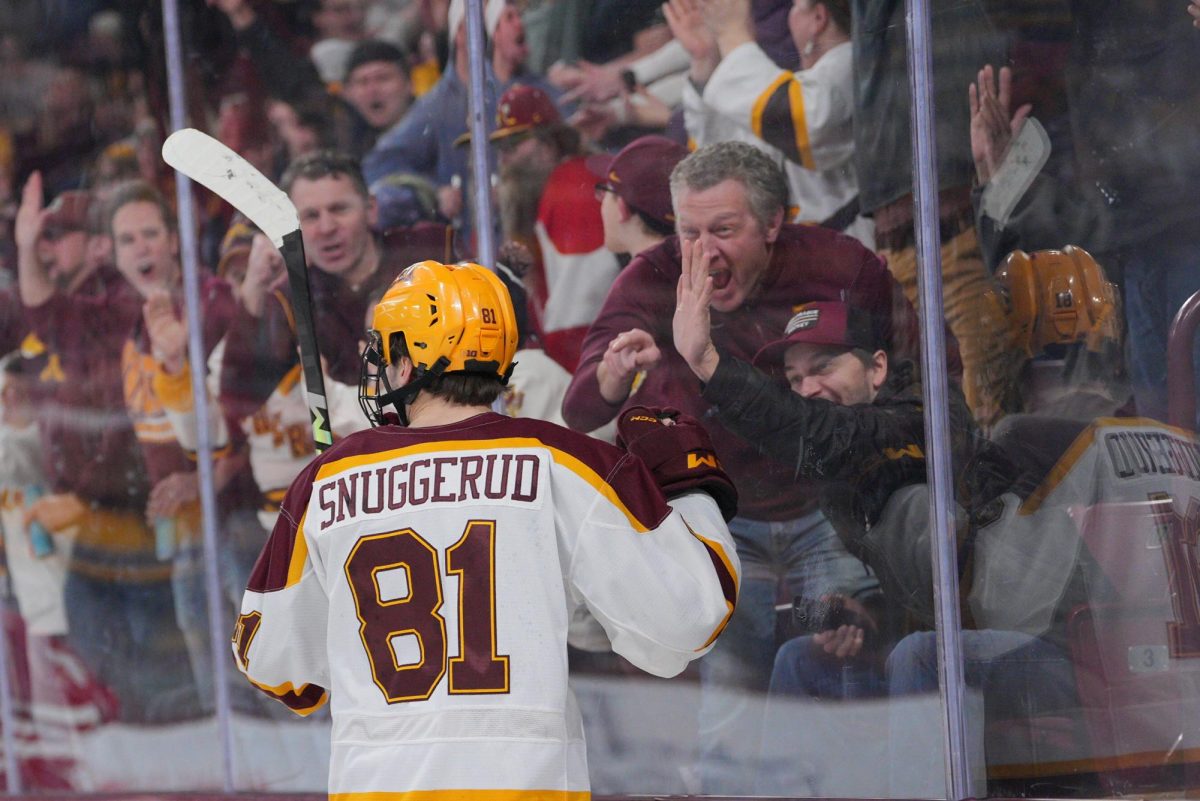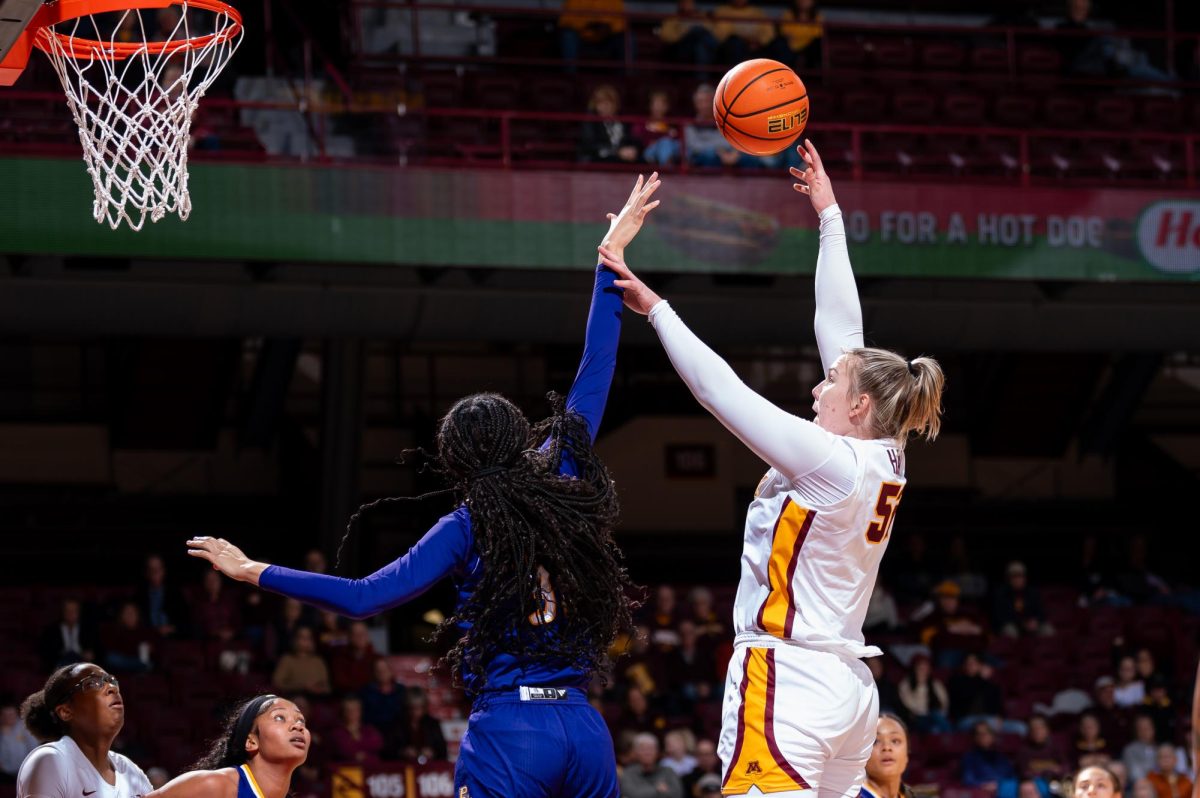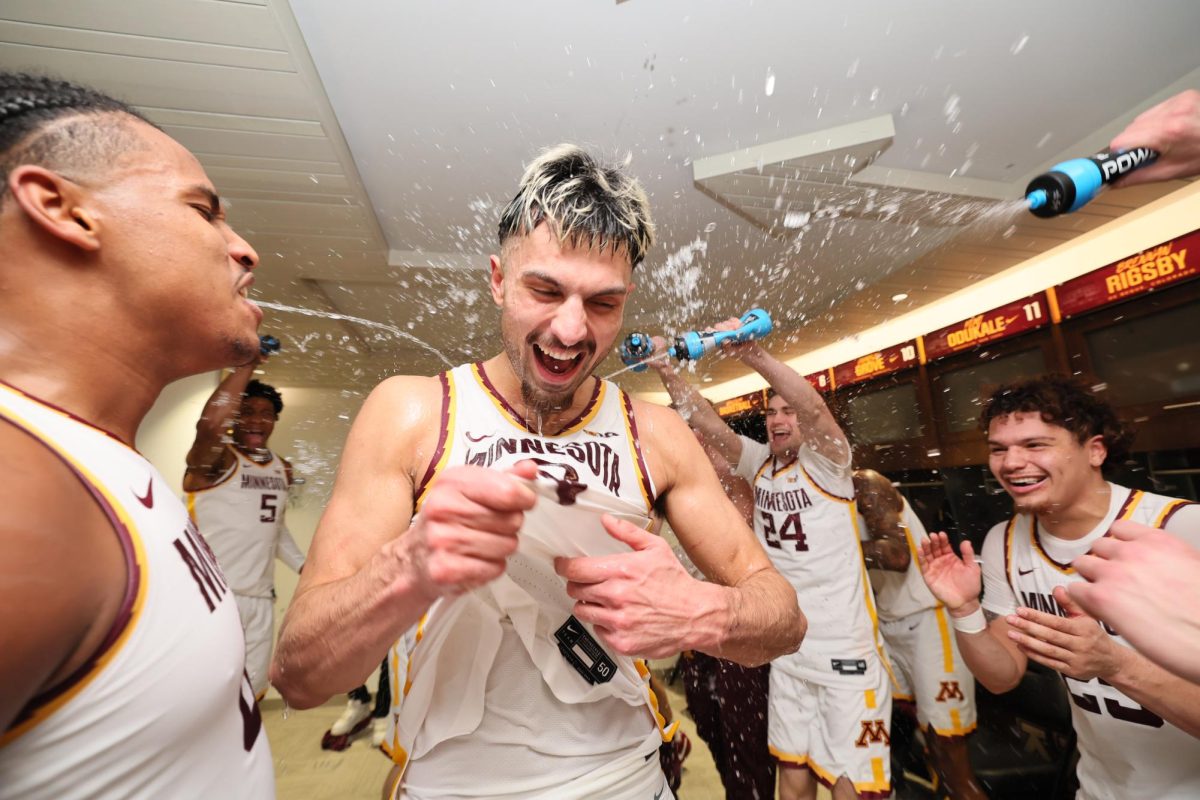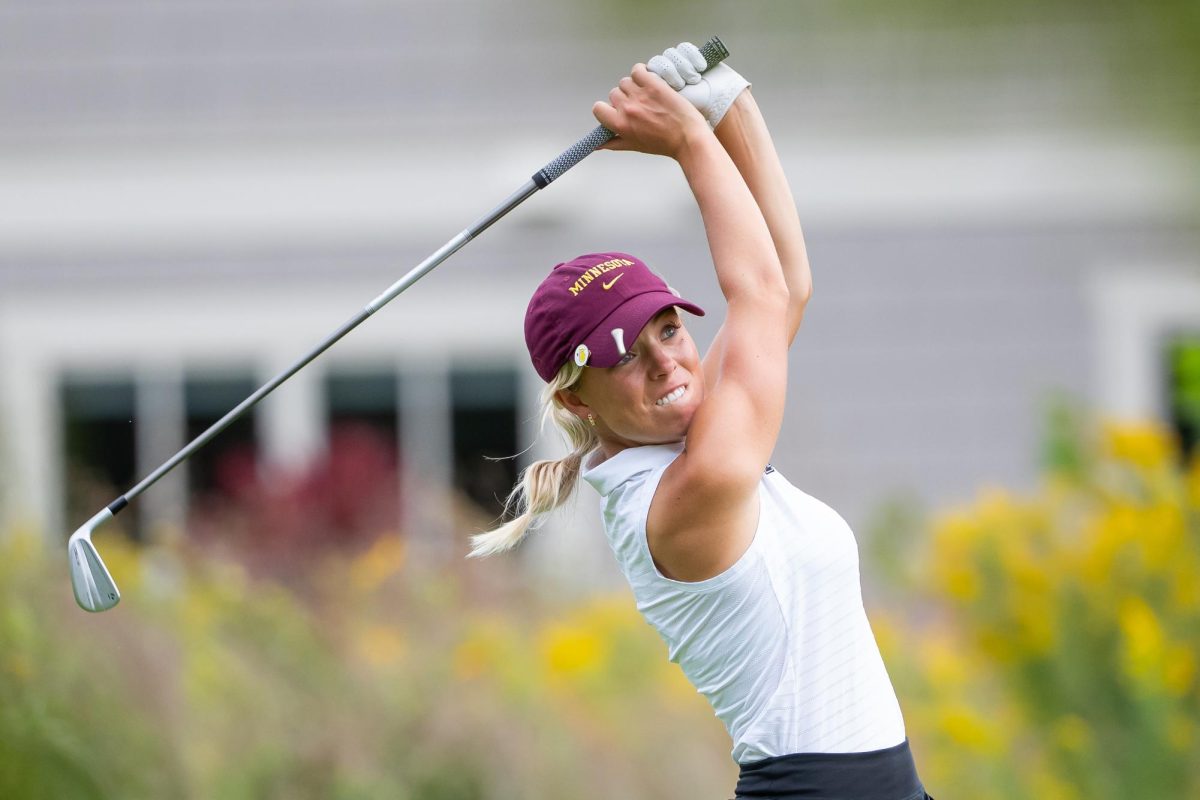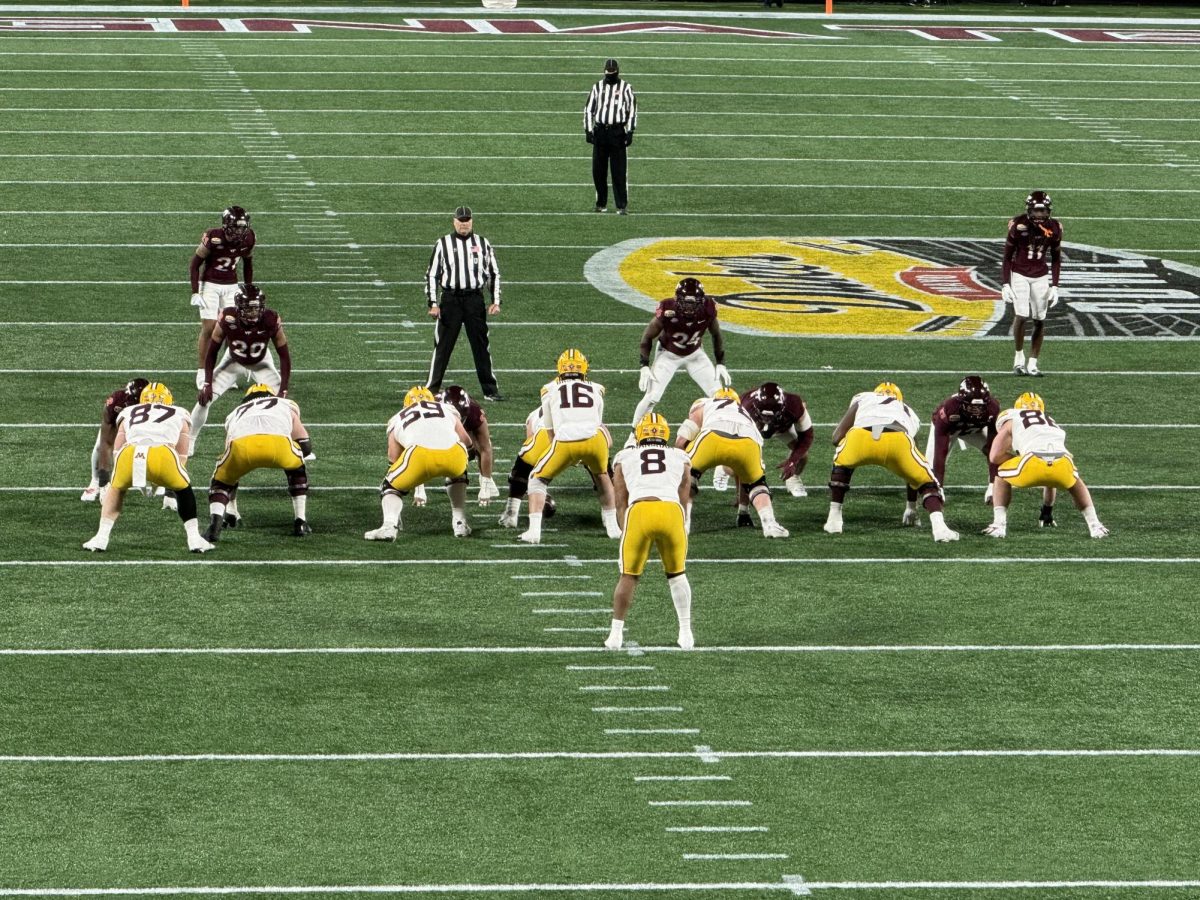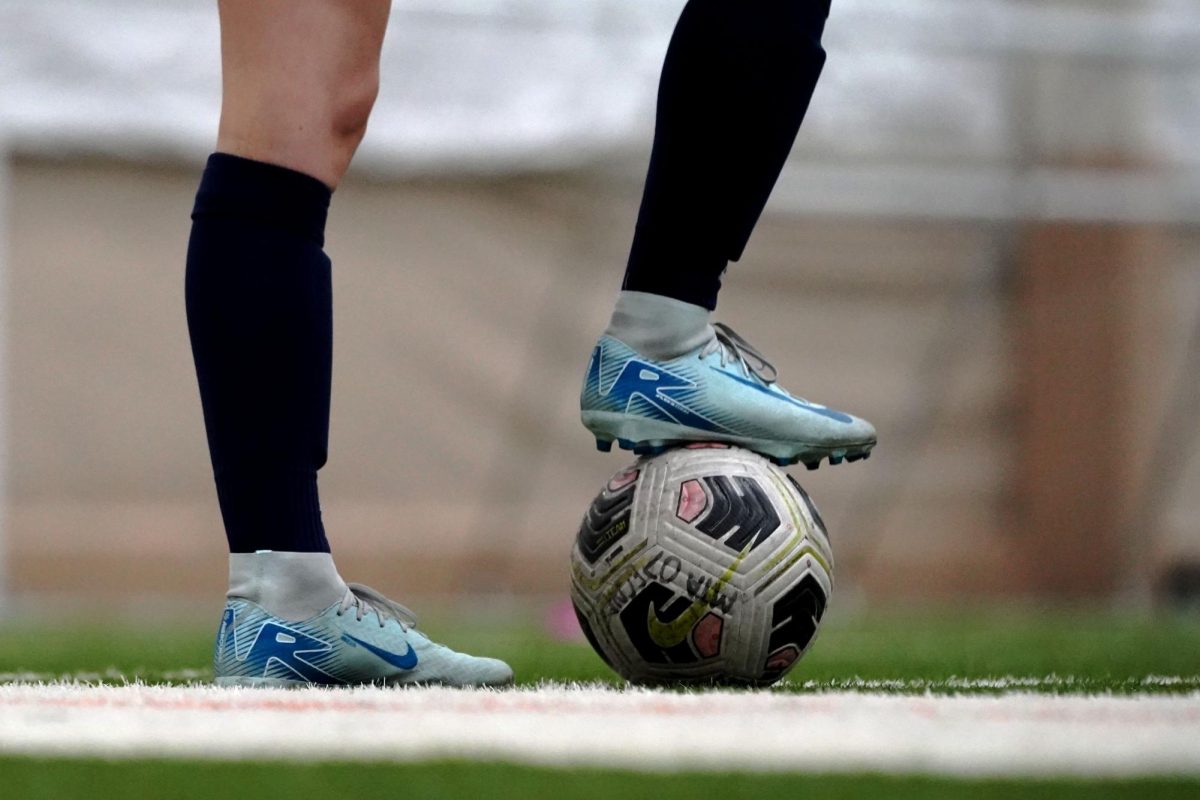University of Minnesota students may soon be able to enjoy food, alcohol and entertainment outside TCF Bank Stadium before Gophers football games.
In an attempt to bring more students to the stadium, the University is creating a proposal for a student tailgate parking lot across the street from the student entrance of TCF Bank Stadium.
Student groups on campus have pushed for a student tailgate lot in the past few years.
Nearly a dozen tailgate lots surround the area within a few blocks from the stadium, but none are designated solely for students.
Executive associate athletics director David Benedict said the Victory Lot — a parking lot northeast of the stadium behind the Thompson Center for Environmental Management — is the only location the University is considering.
The Office of the President organized a committee to begin the design of the tailgate lot. Some of the committee members include University Services, Parking and Transportation Services, University Police, the athletics department and the Office for Student Affairs.
Members of the committee met with student organization leaders last month to address what provisions students would want the tailgate lot to have.
“I think that the fact that they came to students first really speaks to how much they want it to benefit students,” said Joelle Stangler, a Minnesota Student Association member who attended both meetings. “I felt it went really well.”
MSA was one of 55 student groups at the meetings, Benedict said, which took place at the stadium over the course of two days.
The lot will be structured similarly to current University tailgating lots, but students discussed 12 to 15 “issues” concerning the proposed student tailgate lot, said Amelious Whyte, assistant dean of student affairs.
“It’s different from the regular tailgating lots,” he said. “And so that will bring some different challenges.”
The proposal would allow all students to enter the lot. The University will probably charge for parking reservations, Stangler said.
Students supported allowing alcohol and food in the lots, and they showed interest in having entertainment within the lot on special occasions, Whyte said.
Both minors and adults who are older than 21 would be allowed in. Whyte said police would patrol the student tailgate lot similar to any other tailgate lot, but he made it clear students would not be carded at the entrance.
“The expectation would be if you’re not 21, you’re not going to be drinking,” he said.
Whyte said the students at the meetings considered the idea of having student volunteers patrol the lot during games and assist anyone who needs help.
Stangler said people discussed the concern of underage drinking at the meeting, but it wasn’t deemed a big concern.
“I think students were more concerned with making sure that we have a space to go before games,” Stangler said.
Chris Hawthorne, a senior kicker on the Gophers football team, said responsibility was one of the key themes in the meetings.
The students also favored the idea of closing the lot before the football game starts. Whyte mentioned the idea of having the marching band play a few songs in front of the students and then lead them into the stadium for the game.
The feedback produced from the student meetings will be included in a proposal to the University administration, Whyte said. The proposal will be drafted and presented to the committee in the next few weeks.
The goal is to have the tailgate lot ready for Minnesota’s first home game on Aug. 29 against UNLV. Benedict and Whyte said there are no real barriers to stop the lot from being ready before then.
Hawthorne said the University needs to develop a culture of students attending football games to complete the game-day experience.
“I think for too long athletics have been viewed as kind of a luxury and not part of the essential foundation of being a student, regardless of where you are,” he said.
A full student section has an influence on the team’s performance and its ability to recruit, Hawthorne said.
“It really goes a long way in enhancing the complete game-day experience,” he said. “Students are the core of that.”


